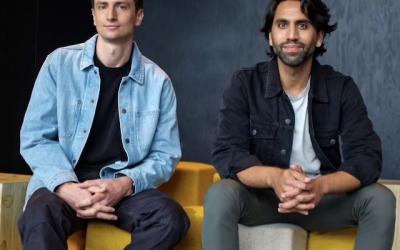Whisper it quietly, but the boundary between YouTube content and broadcast television gets blurrier by the year. YouTube formats are getting longer, with higher production values. Meanwhile, broadcasters are increasingly active on the platform, rubbing shoulders with its native creators.
At TellyCast’s Digital Content Forum 2025 today in London, Abi Watson from Enders Analysis explained how this has shifted viewing habits and content genres on YouTube, as well as how its relationship with the broadcast world is evolving.
“YouTube is now the biggest streaming service in the US with over 12% of viewing on the TV set,” said Watson. That trend is reflected in the UK too, with the shift to the bigger screen sparking a change in consumption: music’s share of trending YouTube content has fallen, and entertainment’s has grown.
YouTube formats have also been getting longer: in 2024 the median length of a UK trending YouTube video was 12 minutes 23 seconds, up from 7 minutes eight seconds in 2020. “That’s a 75% increase,” said Watson, noting that this pattern is repeated in other countries. It’s driven by growth in videos that are 20-60 minutes long, which in turn support a higher ad load – and thus more revenue for YouTube and creators alike.
Content viewing in most markets is local. “People mostly watch creators from their own markets: those who share their language, references and culture,” said Watson, before noting that the US and UK are the exceptions.
“Globalisation on YouTub doesn’t mean homogenisation. It means a few powerful hubs, like the US and UK, exporting into otherwise local ecosystems,” said Watson. But the UK also watches more international content: only 39% of trending YouTube videos in the UK are from British creators, while 45% are from the US.
“How American is UK YouTube? It depends what you’re watching,” she said. British autos and vehicles, news and politics, sports and travel/events videos still do well domestically, but 76% of trending film and animation videos in the UK are from the US, and 74% of how-to and style videos.
Watson noted that traditional broadcasters’ share of trending videos in news and politics in the UK has been falling: something that suits YouTube, since increased competition between a larger number of providers gives it more leverage to call the shots in this ecosystem.
The UK is exporting gaming, sport and entertainment to American YouTube viewers however. In gaming, Minecraft creators are particularly popular across the Atlantic. In entertainment, 38% of British videos trending in the US come from individual creators and creator collectives, but 27% comes from traditional broadcasters and publishers, said Watson.
As for sport, official football club YouTube channels export well to the US, accounting for 26% of trending British videos there, with broadcasters’ content having a 23% share. Meanwhile, fan-media and commentary takes a 14% share.
“Over 60% of all UK sports-related content trending in the US is football,” said Watson. “What makes it work is the full stack: broadcasters, clubs, federations and supporters.”
Football is reflective of wider trends on YouTube, where the collaborative, personality-led content of creators meets the production values of the traditional broadcast world.
“It’s not about YouTube replacing TV,” concluded Watson. “It’s about YouTube absorbing its DNA and redistributing it globally.”





